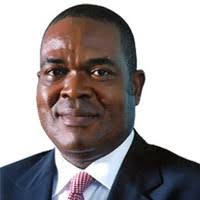By Marcel Okeke
Nigeria’s participation at the recent International Monetary Fund (IMF)/World Bank Group spring meetings in Washington D.C, exposed the country to the good, the bad, and the ugly about the state of its economy. While Nigeria’s delegation led by the Minister of Finance and Coordinating Minister of the Economy, Mr. Wale Edun, attended the meetings to promote the country’s economic reforms and woo investors, the global financial institutions and other stakeholders also presented grim details of Nigeria’s bumpy development ride.
Significantly, the IMF at the occasion, issued a report downgrading Nigeria’s gross domestic product (GDP) growth to only 3.0% for 2025. This downward revision was from IMF’s October 2024 forecast of 3.3%; all in the face of the Federal Government’s ambitious 2025 budget GDP projection of 4.6%. For 2026, the IMF projects Nigeria’s growth to further slow down to 2.7% owing to a number of domestic and emerging global headwinds.
These growth rates for Nigeria place it below the sub-Saharan Africa average which is pegged at 3.8% in 2025 and 4.2% in 2026. The IMF’s World Economic Outlook Report (WEOR, April 2025) said the GDP growth forecast for Nigeria was revised downward owing to lower oil prices. There are also the challenge of heightened uncertainty, the intensification of protectionist policies across the globe, and deeper slowdown in major economies, the report said.
On inflation in Nigeria, the IMF gave a pessimistic outlook, projecting the rate to average 26.5% in 2025, and spike to 37.0% in 2026. The Fund attributes the stubbornly high inflation to structural inefficiencies, a weak supply response, and persisting exchange rate volatility. As of February 2025, Nigeria’s inflation rate was 24.23%.
And just before the Washington D.C meetings, an IMF Mission led by Axel Schimmelpfennig, had appraised Nigeria’s economic reforms, and warned that “the benefits have yet to be broadly felt by ordinary Nigerians.” The institution raised concerns about the “persistently high poverty levels, food insecurity, and inflationary pressures, which continue to erode household purchasing power and delay inclusive economic recovery.”
These IMF’s WEOR concerns came at a time the World Bank’s April 2025 Africa’s Pulse report revealed that Nigeria accounted for 19% of “the extremely poor population in sub-Saharan Africa, the highest share in the region.” This figure translates to over 106 million Nigerians living in extreme poverty, “representing approximately 15% of the world’s poorest people.”
The report also projected that Nigeria’s national poverty rate could surge to 3.6% by 2027, underscoring the severity of the crisis in one of Africa’s largest economies. This projection highlighted a harsh reality: Nigeria, despite being one of the largest economies in Africa, remains a global epicenter of poverty, owing to its structural economic weaknesses, over reliance on oil, and national fragility.
The National Bureau of Statistics (NBS) report shows that in 2023, about 87 million Nigerians (38.8 %) lived below the national poverty line (less than $2 per day), making Nigeria the world’s second largest poor population after India. And by 2024, 106 million Nigerians were in extreme poverty, reflecting a persistent upward trend. PwC estimates that 13 million more Nigerians could fall into poverty this year (2025), further compounding the crisis.
Aside the ballooning poverty level, the World Bank also identified Nigeria’s national currency (Naira) as one of Africa’s worst performing currencies, having lost over 70% by 2024. The Bank blamed this worrisome scenario on “the sharp depreciation following government’s decision to unify exchange rates, and transition to market-determined FX regime.”
In the face of this scary outcome, a report from Africa Export-Import Bank (Afreximbank) shows that Nigeria has actually dropped to the fourth spot among African countries by GDP in 2024. This is as against the first position the country used to occupy since 2014, when it redenominated its GDP to hit about $450 billion in value.
According to the research report of the Cairo-based Afreximbank, Nigeria which, until 2023 was the continent’s biggest economy, fell to the fourth position after sharp devaluations of its currency that shrank its GDP by more than half, causing the naira to lose roughly 70% of its value against the dollar.
South Africa, the continent’s most industrialized economy, has taken the lead at $400.2 billion, with Egypt in tow at $383.1 billion. Algeria came third at $264.9 billion, followed by Nigeria at $188.5 billion. Nigeria’s slide to the fourth position “underscores the deep macroeconomic imbalances and FX challenges the country faces despite its vast population and resource base,” said Afreximbank.
Apparently shirking these weighty and frightening projections and realities, however, Nigeria’s Minister of Finance and Coordinating Minister of the Economy, Mr. Wale Edun, chose to paint a different picture to show a positive outlook for Nigeria’s economic growth. At one of his outings at the Washington D.C meetings, Edun told foreign investors that the country was on the road to a seven per cent GDP growth rate.
In obvious self-adulation, the Minister told the investors that the Government through its reforms had laid the foundation that would make the country the desired destination for private investors. He called for investments in infrastructure, manufacturing and agriculture.
Speaking in a similar vein at the event, Governor of the Central Bank of Nigeria (CBN), Mr. Olayemi Cardoso, said Nigeria’s economy was already on the path of stabilization and recovery “following months of tough but necessary reforms.” He said “The difficult reforms that have been undertaken have begun to bear fruits. Orthodox monetary policy was a road we chose deliberately, and we have no intention of compromising on it.”
With the glaring difference between the fears and warnings of the Bretton Woods Institutions and African Export-Import Bank on one hand and the self praises of Nigeria’s top Government officials regarding the Nigerian economy, the days ahead are really cloudy. The dispassionate assessment and cautions of the global financial institutions about Nigeria’s weak economy are real pointers to ominous times ahead.
For too long Nigerians have been deluded by the sugar-coated tongues and propaganda machinery of Government officials about the true state of the economy. It is time to recognize the fantasies, the realities and informed projections for what they are.
The author, Okeke, a practicing Economist, Business Strategist, Sustainability expert and ex-Chief Economist of Zenith Bank Plc, lives in Lekki, Lagos.
He can be reached via: obioraokeke2000@yahoo.com (08033075697) SMS only




